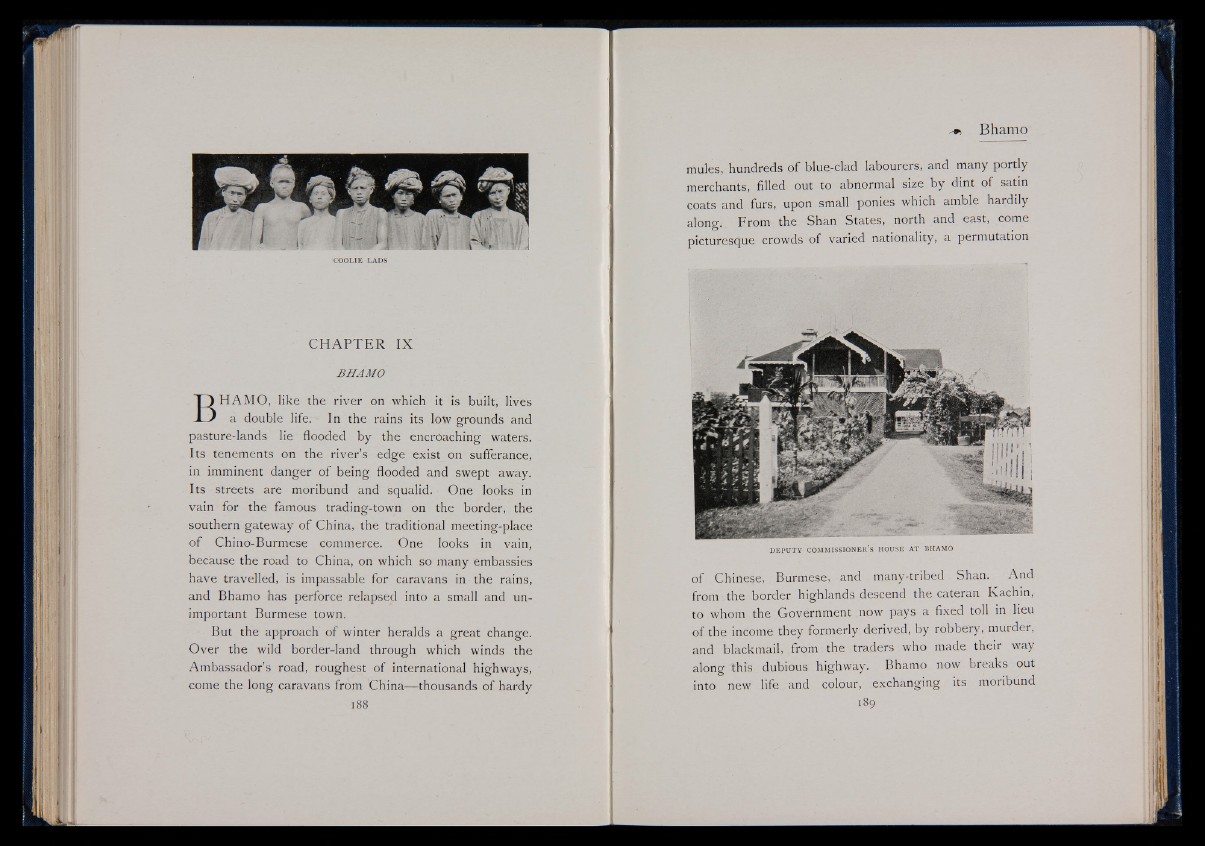
COOLIE LADS
CH A P T E R IX
B H A M O
BHAMO, like the river on which it is built, lives
a double life. In the rains its low grounds and
pasture-lands lie flooded by the encroaching waters.
Its tenements on the river’s edge exist on sufferance,
in imminent danger of being flooded and swept away.
Its streets are moribund and squalid. One looks in
vain for the famous trading-town on the border, the
southern gateway of China, the traditional meeting-place
of Chino-Burmese commerce. One looks in vain,
because the road to China, on which so many embassies
have travelled, is impassable for caravans in the rains,
and Bhamo has perforce relapsed into a small and unimportant
Burmese town.
But the approach of winter heralds a great change.
Over the wild border-land through which winds the
Ambassador’s road, roughest of international highways,
come the long caravans from China— thousands of hardy
mules, hundreds of blue-clad labourers, and many portly
merchants, filled out to abnormal size by dint of satin
coats and furs, upon small ponies which amble hardily
along. From the Shan States, north and east, come
picturesque crowds of varied nationality, a permutation
D E PU T Y COMMISSIONER’S HOUSE A T BHAMO
of Chinese, Burmese, and many-tribed Shan. And
from the border highlands descend the cateran Kachin,
to whom the Government now pays a fixed toll in lieu
of the income they formerly derived, by robbery, murder,
and blackmail, from the traders who made their way
along this dubious highway. Bhamo now breaks out
into new life and colour, exchanging its moribund
189